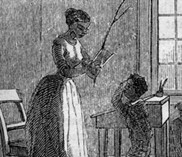
Corporal Punishment
Folly is bound up in the heart of a child, but the rod of discipline drives it far from him. (Prov 22:15)
Correct your son before it is too late 1. To do otherwise is to condemn him to death. Prov 19:18)
Do not withhold discipline from a child; if you strike him with a rod, he will not die.
Indeed, if you punish him with the staff, you will save his soul from Sheol. (Prov 23:13-14 )
A rod and reproof give wisdom, but a child left to himself brings shame to his mother. (Prov 29:15)
Withholding his punishment is to hate the son; to love him is to seek his correction. (Prov 13:24 )
For many Jews and Christians, these five passages that seemingly advocate corporal punishment are very troubling. However, parental attitudes were very different in biblical times, no less so than, say, 60 years ago. But, as we will soon learn, while the Bible manifestly supports corporal punishment, maybe we are missing the forest for the trees. Let us take a closer look.
To understand these passages, consider encountering a police officer pointing at us with a radar gun as we drive through a school zone. Most of us immediately check our speedometers and simultaneously ease off the gas pedal. But why? Well, we fear the punishment for speeding in a school zone. The officer symbolizes the authority to punish us for speeding. So we submit to [legitimate] authority because we fear the consequences of its exercise. In this example, authority and its ability to impose consequences when violated are what slow us down 2.
With this in mind, let us examine two key words occurring or implied in the verses above. Proverbs 22:15 is representative. In this verse we read the Hebrew phrase, שֵׁבֶט מוּסָר (shevet (‘rod of’) musor (‘correction or discipline’) which is almost universally translated as ‘rod of discipline‘ or ‘rod of correction.‘ 3. Now, shevet can certainly mean rod in the sense of a weapon such as a club or staff. Staves are surely weapons in some cases but its more common meaning is something used to guide or point the way (e.g., a shepherd’s staff). see Psalm 23:4, Micah 7:14). Finally, shevet can also mean scepter — a badge of authority carried or worn by a court official (see Amos 1:5; Zechariah 10:11, Genesis 49:1, Numbers 17:2).
Thus we contemporary, twenty-first Christians and Jews should interpret these verses to mean that parents are to establish their authority and not fear its exercise when warranted. In this regard Proverbs 13:24(above) is instructive. Here it is again:
“Whoever spares his rod hates his son, but he who loves him disciplines him diligently.”
The Hebrew phrase, חוֹשֵׂךְ שִׁבְטוֹ (choshekh shibto – “sparing his rod”), uses shevet (“rod”) with the suffix –o (“his”), symbolizing the parent’s authority. In this verse, “sparing the rod” metaphorically means withholding the child’s needed discipline—whether physical or otherwise—when a child’s folly or misbehavior warrants correction 4. This discipline isn’t arbitrary; just as God corrects His people with purpose and love (Proverbs 3:12, Hebrews 12:6), parents are called to discipline thoughtfully, ensuring consequences are justified to steer the child toward wisdom. Arbitrary or excessive punishment contradicts this biblical call to loving correction. Thus, God emphasizes the exercise of parental authority, not the specific method, as an act of love that curbs folly and fosters righteousness.
Notice that the verses do not tell us we must employ corporal punishment. Indeed, the manner in which parents choose to exercise their authority is strictly a matter of prudential judgment. God, it seems, is less concerned with how we exercise parental authority and more concerned that we do. In this final analysis, parents are reminded that corporal discipline – when necessary and exercised rightly – can be an act of parental love. More importantly, a child’s fear of parental authority acts to curb the child’s misbehavior.
Now, go and study
- The literal translation of “too late” is “while hope exists”
- Of course, cognitive dissonance plays a role here as well. The longer we live under [legitimate] authority, what was initially a rule to be obeyed, over time becomes a moral value. In other words, we come to obey the speed limit not because we will be punished but because it’s right to do so
- Other translations exist of shevet musor, but they are no less specific. For example the New Living Translation translates the phrase as ‘physical discipline’ while the Good News Translation renders it as ‘a good spanking’
- “Folly” in Proverbs refers to unwise or rebellious behavior (see Proverbs 22:15).
